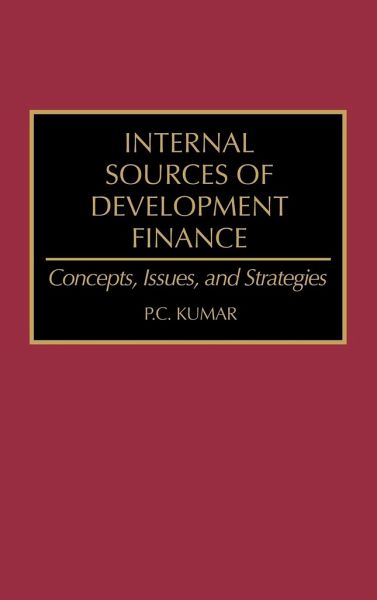
Internal Sources of Development Finance
Concepts, Issues, and Strategies
Versandkostenfrei!
Versandfertig in 1-2 Wochen
69,99 €
inkl. MwSt.

PAYBACK Punkte
35 °P sammeln!
The 1980s have witnessed the mass migration of developing countries and the erstwhile socialist nations to market-based economic systems. The reality is that limited finance has been a formidable barrier to these countries' growth and development. Moreover, they need to rely on their internal sources as external funds are not easily forthcoming. This book identifies four sources of internal finance--tax policies, capital markets, specialized financial institutions (such as development banks), and privatization of the public sector. It examines the conceptual foundations, operating and theoreti...
The 1980s have witnessed the mass migration of developing countries and the erstwhile socialist nations to market-based economic systems. The reality is that limited finance has been a formidable barrier to these countries' growth and development. Moreover, they need to rely on their internal sources as external funds are not easily forthcoming. This book identifies four sources of internal finance--tax policies, capital markets, specialized financial institutions (such as development banks), and privatization of the public sector. It examines the conceptual foundations, operating and theoretical issues, as well as strategic considerations relating to these sources. In Part I, Kumar surveys and synthesizes theories of economic development and growth. He concludes by pointing out that these theories have ignored the importance of financial factors, i.e. markets and institutions. Part II, which relates to the internal sources of development finance, begins by examining tax policies. The author surveys the conceptual foundations of financial intermediation and then examines the role of capital markets and specialized financial institutions. Finally, the privatization of the public sector is seen as a special case of intermediation. The book clearly identifies the interrelationships among the internal sources of finance. Efficient financial intermediation is seen as the key to the growth and development of these nations. Ideal as a required text in courses in development finance and economics, this book is an important resource for consultants, professionals in the field of development, and government officials.














